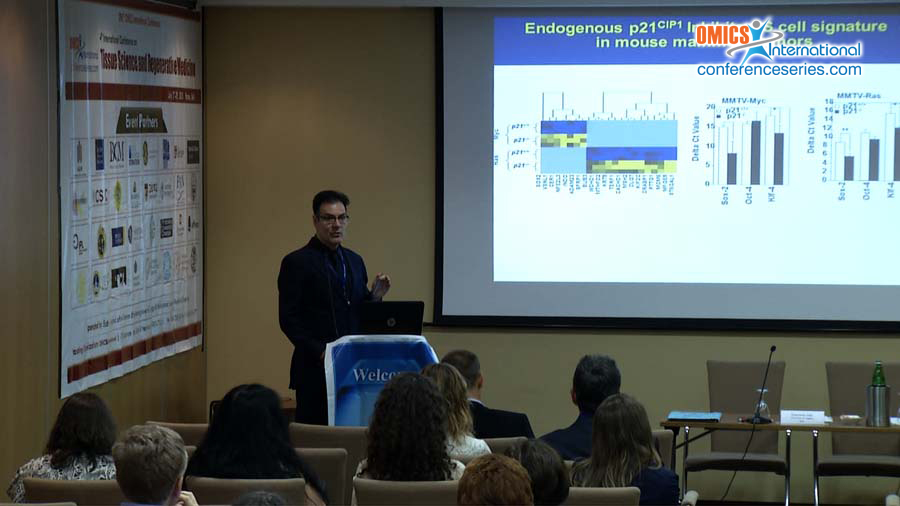
Richard G. Pestell
Thomas Jefferson University
USA
Title: Breast cancer stem cell function: Molecular genetic determinants and the cell fate determination pathway
Biography
Biography: Richard G. Pestell
Abstract
A subpopulation of cells have been identified within tumors referred to as tumor initiating cells (BTIC) (cancer stem cells). These cells have been hypothesized to contribute to therapy resistance and tumor recurrence. Contributions to the understanding of the molecular genetic drivers of TIC using multigenic tissue specific temporally and spatially inducible transgenic mice have shown endogenous mammary tumor stem cells expansion is maintained by endogenous c-Jun, and NFkB. The cell cycle control protein p21CIP1 restrains, and cyclin D1 promotes, TIC populations respectively and Notch requires cyclin D1 for BTIC expansion. \\r\\nRecent studies from this laboratory have shown the RDGN (retinal determination gene network) is a dominant regulator of BTIC. In Drosophila Melanogaster, the Retinal Determination Gene Network (RDGN) determines organismal cell fate. The RDGN human homologues include DACH, EYA, Six, and Toy. We showed the RDGN (DACH1, and Eya) governs BTIC. The Drosophila Eyes Absent Homologue 1 (EYA1) is a component of the retinal determination gene network and serves as an H2AX phosphatase. EYA1 enhanced breast tumor growth in mice in vivo, requiring the phosphatase domain. EYA1-dependent induction of breast cancer cell proliferation and mammosphere formation was cyclin D1-dependent. The induction of cellular proliferation and cyclin D1 abundance, but not apoptosis, was dependent upon the EYA1 phosphatase domain. The relative proportion of cells, with characteristics of breast tumor stem cells were assessed in mice with targeted deletion of Dach1 in the mammary gland. The function of the RDGN and the interface with the cell cycle control genes in BTIC will be discussed\\r\\n

